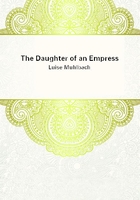
第57章 ELEONORE LAPUSCHKIN(3)
It was not difficult to convict the countess of the crime charged;incautiously enough had she often expressed her attachment to the cause of the imprisoned Emperor Ivan, and her contempt for the Empress Elizabeth. And in what country is it not a crime to speak disrespectfully of the prince, though he be a criminal and one of the lowest of men?
She was therefore declared guilty; she was sentenced to be scourged with the knout, to have her tongue torn out, and to be transported to Siberia!
Elizabeth did not pardon her. She was a princess--how, then, could she pardon one who had dared to revile her? Every crime is easier to pardon than that of high-treason; for every other there may be extenuating circumstances--for that, never; it is a capital crime which a prince never pardons; how then, could Elizabeth have done so?
--Elizabeth, Empress by the grace of God, as all are princes and kings by the grace of God!
The people were running to and fro in the wildest confusion in the streets of St. Petersburg; they cried and shouted /vivas/ to their empress who to-day accorded to them the splendid spectacle of the knouting of some respectable ladies and gentlemen! Ah, that was a very gracious and condescending empress to provide once more a delightful spectacle for her serfs at the expense of the nobility! That was an empress after their own hearts--real Russian blood!
Shrieking and shouting they rushed to the place of execution, pressing against the barriers that separated the central point from the spectators. There stood the bearded assistants of the executioner, there lay the knouts and other instruments, and with eager glances the people devoured all: they found all these preparations admirable, they rejoiced with unrestrained delight in the prospect of seeing the handsomest woman in the realm flayed with the knout. And not the common people alone, the /noblesse/ must also be present; the great magnates of the court must also come, if they would avoid exciting a suspicion that they commiserated the condemned and revolted at their punishment. They all came, these slavish magnates, perhaps with tears in their hearts, but with smiles upon their lips; perhaps murmuring secret curses, but aloud applauding the just sentence of the empress.
Now the closed carriages of the condemned were seen approaching in a long, lingering train; the train halted, the doors were opened, and in the centre of the place of execution appeared Eleonore Lapuschkin, radiant with the brilliancy of the purest beauty, her noble form enveloped in a full, draping robe, which lent to her loveliness an additional charm. She looked around with an astonished and interrogating glance, as if awaking from a confused dream. Young, amiable, the first and most celebrated lady of the court, of which she was the most brilliant ornament, she now sees herself, instead of the admirers who humbly paid their court to her, surrounded by these rough executioners, who regard her with bold and insolent glances, eagerly stretching forth their hands for their prey. One of them, approaching her, ventures to rend from her bosom the kerchief that covers it.